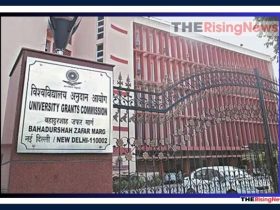NEW DELHI, July 29, 2024 – In a landmark decision, the Supreme Court of India has refused to stay the Patna High Court’s order that invalidated Bihar Reservation Policy controversial move to increase reservation for backward classes from 50% to 65% in government jobs and educational institutions. This ruling has reignited the national debate on affirmative action policies and their constitutional limits.
On November 7, 2023, Bihar’s Mahagathbandhan government, led by Chief Minister Nitish Kumar, raised the reservation quota for backward classes to 65%, while also allocating an additional 10% for Economically Weaker Sections (EWS). This push to 75% total reservation significantly surpassed the 50% cap established by previous Supreme Court judgments, leading to a legal challenge and the Patna High Court’s decision to strike down the policy on June 20, 2024.
A three-judge Supreme Court bench, headed by Chief Justice D Y Chandrachud and including Justices J B Pardiwala and Manoj Misra, admitted the petition challenging the High Court’s order but declined to provide interim relief. Senior Advocate Shyam Divan, representing Bihar, argued for a stay on the ruling, citing a similar precedent in Chhattisgarh. However, the Supreme Court emphasized the need for a larger bench to review this complex issue.
“We will simply grant leave and hear the matter,” stated Chief Justice Chandrachud, signaling the court’s intention to examine the case thoroughly. Divan stressed the importance of a well-considered interim arrangement, highlighting the potential impact on Bihar’s governance and social fabric.
The High Court’s observation that 68% of civil services positions were already filled by reserved category candidates added weight to its decision, underscoring the delicate balance between affirmative action and merit-based selection in public services.
Bihar Reservation Policy
India’s reservation policy, enshrined in the Constitution, aims to address historical injustices and promote social equality. However, Bihar’s attempt to increase the quota to 65% raised concerns about exceeding constitutional limits and potentially compromising the quality of public services.
This case has far-reaching implications for reservation policies across India, reopening the debate on the appropriate balance between affirmative action and merit. It questions whether the current 50% cap on reservations remains relevant in contemporary Indian society, where social dynamics and economic challenges continue to evolve.
Legal experts are closely watching this case. Constitutional law specialist Arvind Sharma commented, “This decision reflects the ongoing tension between social justice imperatives and the need for constitutional limits. The Supreme Court’s final ruling could reshape how states implement reservation policies within constitutional boundaries.”
Sociologist Dr. Priya Mehta added, “While reservations have been crucial in addressing historical inequalities, we must also consider their long-term impact on social cohesion and meritocracy. This case provides an opportunity to reassess and potentially modernize our approach to affirmative action.”
The next hearing, scheduled for September, is eagerly anticipated by legal experts, policymakers, and citizens alike. It promises to be a pivotal moment in India’s jurisprudence on affirmative action and social justice.
Key Takeaways:
- The Supreme Court’s decision maintains the 50% reservation cap in Bihar for now, pending further review.
- This case highlights the ongoing tension between social justice goals and constitutional limits on reservations.
- The final ruling could have far-reaching implications for reservation policies across India.
- The decision underscores the need for a nuanced approach to affirmative action in India’s diverse society.
- The September hearing will be crucial in shaping the future of reservation policies nationally.
For more information and expert analysis on this pivotal case, visit the Supreme Court of India’s official website or consult with legal experts specializing in constitutional law.
- Kerala Bag Free Days Initiative Transforms Students Life In Kerala Schools: initiative for Class 1 to 12 students, starting 2024-2025 academic year
- Bagless Days for Classes 6-8: Education Ministry’s New Guidelines for Hands-on Learning and Vocational Training
- AIIMS Bhubaneswar Applications for Post-Doctoral Fellowship Program 2024 Open, 14 Vacancies Available
- IBPS Clerk 2024: Extended Application Deadline Ends Today, Apply Now @ibps.in
- AIIMS Bhubaneswar Applications for Post-Doctoral Fellowship Program 2024 Open, 14 Vacancies Available




